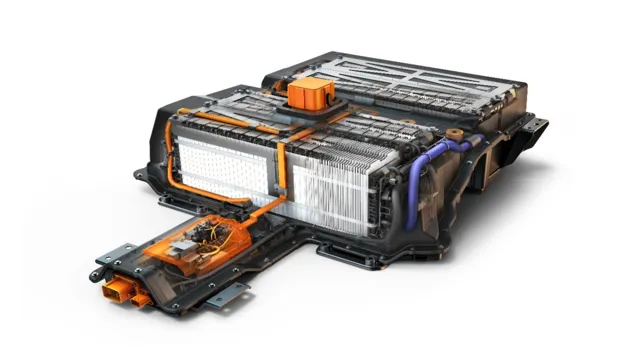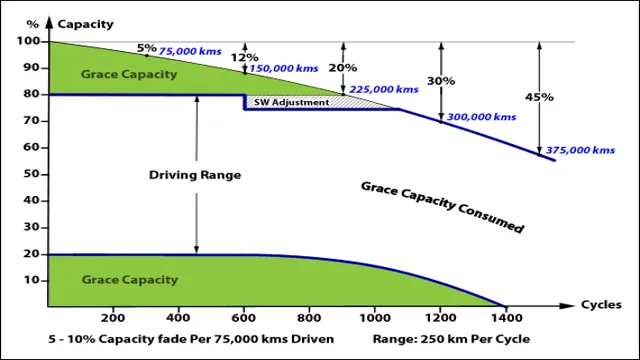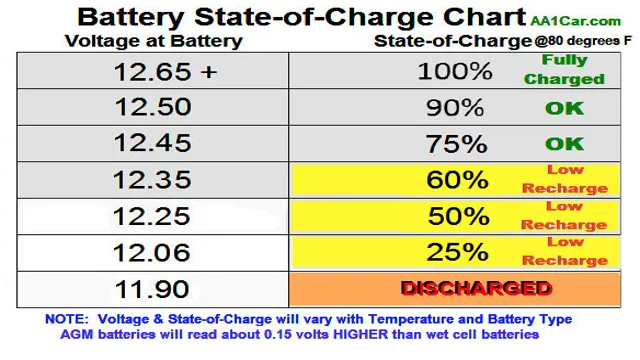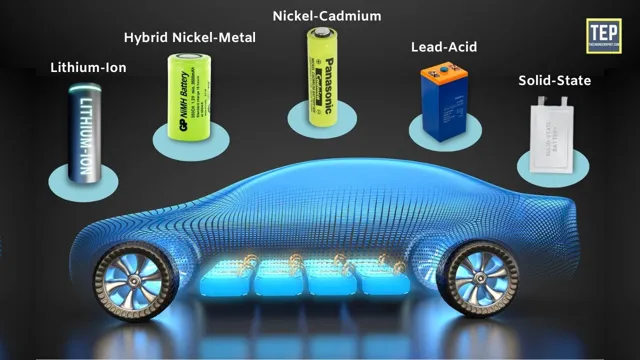Unveiling the Truth: Does an Electric Car Have a Battery?
Electric cars are sprouting up on roads more and more frequently, and for good reason. These cars provide an eco-friendly alternative to their gas-guzzling counterparts. However, one aspect of electric cars that is not widely discussed is the importance of batteries.
Without batteries, electric cars would not exist in their current form. Batteries provide the power necessary for electric cars to run. But what exactly are electric car batteries, and how do they work? In this blog, we will dive into the intricacies of electric car batteries and explore why they are crucial to the success of electric cars.
Understanding Electric Cars
One question that potential electric car buyers may have is whether or not an electric car still has a car battery. The answer is yes, electric cars do still have a car battery. However, the type of battery used in electric cars is different from the traditional lead-acid battery used in gasoline cars.
Electric cars use lithium-ion batteries, which are more powerful and efficient. These batteries store electricity that powers the electric motor, allowing the car to move. Additionally, electric cars often have a second battery, called the 12-volt battery, which is used to power the car’s accessories.
This battery is similar to the one in traditional cars, but it is smaller and lighter. Overall, an electric car still relies on a battery to operate, but the type of battery used is different from that in traditional gasoline-powered cars.
Electric car basics
Electric cars are becoming more and more popular, but you may be wondering, what exactly makes an electric car different from a traditional fuel-powered vehicle? The answer is simple – electric cars use an electric motor powered by rechargeable batteries instead of a gas engine. It’s a clean and relatively quiet technology that’s also more energy-efficient than traditional gas engines. Their batteries can be charged at home, in public charging stations, or even while driving through regenerative braking, which captures energy lost during braking and feeds it back into the battery.
Plus, electric cars are cheaper to maintain since they don’t require oil changes or other routine maintenance associated with traditional cars. With advancements in technology, the range of electric cars has increased, and many models can now travel over 200 miles on a single charge. By choosing an electric car, you won’t just save money – you’ll be doing your part in reducing emissions and promoting environmentalism.
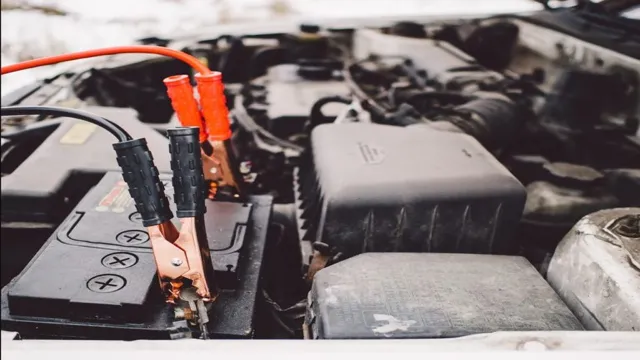
Battery components and technology
When talking about electric cars, the battery component is a vital piece of technology that makes it all possible. As the primary source of power, the battery provides energy to the electric motor that drives the car forward. The electric car battery is made up of individual cells known as lithium-ion batteries, which are arranged in a series or parallel configuration.
These batteries store energy in the form of chemical bonds, and when they are charged, they release electrons that flow through the motor, powering the wheels. The advancements in battery technology have made electric cars more efficient, longer-lasting, and less expensive. Nowadays, electric cars can travel more miles on a single charge, and charging times have reduced significantly.
With each new generation of electric car batteries, we are getting closer to an era where electric cars are as viable as traditional gasoline-powered vehicles. The increasing popularity of electric cars demonstrates the effectiveness of this incredible technology, which is revolutionizing transportation on a worldwide scale.
Yes, Electric Cars Have Batteries
Yes, electric cars still have car batteries! In fact, the battery is an essential component of an electric car. Unlike traditional vehicles that have a lead-acid battery that primarily serves to start the engine, modern electric cars use high-quality lithium-ion batteries that store and supply power to the motor. These advanced batteries are designed to provide a sufficient amount of power to run the car’s motor, electronic systems, and accessories.
They are rechargeable, and their capacity varies depending on the car model and manufacturer. Electric cars use the battery pack as the primary energy source, and when the battery is depleted, it needs to be recharged. Generally, the battery’s lifespan varies depending on usage and driving habits, but most manufacturers offer warranties on their battery packs.
In summary, electric vehicles not only have car batteries, but their batteries are an essential component that determines their performance, range, and durability.
Battery types and functions
When it comes to electric cars, the battery is the heart of the vehicle. There are several different types of batteries used in EVs, but the most common is Lithium-ion (Li-ion). These batteries are highly efficient and have a long lifespan, making them ideal for powering electric cars.
But what exactly do they do? Well, for starters, they provide the energy needed to run the car’s electric motor. They also store energy generated during regenerative braking, which is when the car’s motor acts as a generator to slow down the car and convert kinetic energy into electrical energy, which is then stored in the battery. The battery also powers the car’s auxiliary systems, such as air conditioning, lights, and the stereo.
Overall, the battery is what enables electric cars to travel long distances without producing any emissions, which is why it’s such an essential component of EVs.
Battery charging and range
Electric cars have become increasingly popular as we strive to reduce our carbon footprint and save on fuel costs. One of the most significant differences between electric cars and traditional gasoline-powered vehicles is the battery powering the electric car. The battery is responsible for storing the electricity that will power the car.
It is rechargeable and will last for many years before needing to be replaced. Charging the battery is an essential part of owning an electric car, and there are various ways to do this. At home, you can use a standard outlet, a level 2 charger, or the increasingly popular level 3 chargers found across the country.
The range of an electric car refers to how far it can travel on a single charge. Range varies depending on the specific car and driving habits, but most popular electric cars can travel over 200 miles on a single charge. Overall, electric car batteries are incredibly efficient, and with advancements in technology, they continue to improve.
Battery replacement and recycling
Electric Car Battery Replacement and Recycling You may be wondering what happens to electric car batteries when they die. The good news is that electric car batteries can be recycled. However, battery replacement and recycling are not as simple as changing out a household AA battery.
It requires specialized equipment and professionals that are trained to handle the batteries’ hazardous components. When an electric car battery dies, the first step is to determine whether it can be repaired or if it requires a replacement. Electric car batteries are expensive, so replacements can cost thousands of dollars, and recycling is also a costly process.
However, there are many companies that specialize in battery replacement and recycling, and they can help make the process more affordable. Battery recycling involves dismantling the battery and separating out its components. Lithium-ion batteries, which power most electric cars, contain hazardous materials like lead and cobalt and should not be disposed of in landfills.
Instead, the recyclable materials can be extracted and used to make new batteries or other products. In conclusion, electric car batteries are not just a throwaway item. They require specialized care, handling, and disposal.
Battery replacement and recycling are necessary to keep electric cars running and to protect the environment. So, the next time you’re looking to replace your electric car battery, be sure to choose a company that’s certified in battery recycling and disposal.
Why Car Batteries Matter
Yes, electric cars still have car batteries – in fact, they have much larger batteries than traditional petrol or diesel cars. The battery in an electric car is responsible for powering the motor, which provides acceleration, as well as all the electronic features in the car, such as air conditioning and infotainment systems. It’s important to note that unlike traditional car batteries that require regular maintenance and replacement, electric car batteries are designed to last for many years.
However, it is still important to take proper care of your electric car battery to ensure maximum performance and longevity. This includes charging the battery regularly, avoiding extreme temperatures, and keeping the battery at an optimal state of charge. Investing in a high-quality car battery is a crucial aspect of owning an electric car, as it is essential to its performance and functionality.
So, if you’re in the market for an electric car, make sure you pay attention to the battery before making your final decision!
Performance and efficiency
When it comes to the performance and efficiency of your car, having a reliable and functional battery is essential. A car battery serves as the primary power source for starting your engine and running your electrical components. Without a functioning battery, you may find yourself stranded and unable to start your car.
But the benefits of a good car battery go beyond just starting your engine. A high-quality battery can also improve your car’s fuel efficiency and reduce the strain on your alternator. This means that not only will you have a more reliable vehicle, but you’ll also save money on gas and reduce the risk of costly repairs down the line.
So the next time you’re considering skimping on a new car battery, remember how important it is for the overall performance and efficiency of your vehicle.
Environmental impact and sustainability
Car batteries may seem like a small component of an automobile, but they are actually incredibly important for the environment and sustainability. These batteries not only power the car, but they also contain many toxic substances that can be harmful if not disposed of properly. When car batteries are not recycled or disposed of correctly, they can release lead, cadmium, and other harmful chemicals into the environment.
This can pollute the air, water, and soil, affecting both humans and wildlife. However, proper recycling and disposal of car batteries can greatly reduce these negative impacts on the environment. In addition, advances in technology have led to more sustainable options for car batteries, such as lithium-ion batteries that have a longer lifespan and can be recycled more easily.
By choosing sustainable car battery options and responsibly disposing of old car batteries, we can minimize our impact on the environment and promote a more sustainable future.
Final Thoughts
If you’re considering making the switch to an electric car, one of the questions you may have is whether or not it still uses a car battery. The answer is yes, but it works a bit differently than a traditional gas-powered car. Instead of a 12-volt battery that powers the lights and accessories, electric cars have a much larger battery pack that powers the motor.
This battery pack is typically made up of thousands of small lithium-ion cells that work together to provide the energy needed to drive the car. While the battery size and capacity varies depending on the make and model of the electric car, it’s an essential component that allows the car to operate. And just like a traditional car battery, the battery pack in an electric car will eventually need to be replaced, typically after several years of use.
Overall, while electric cars may have some differences in terms of their batteries, they still rely on them to power the vehicle’s motor and other systems.
Conclusion
In conclusion, an electric car does still have a car battery, but it’s not your typical lead-acid battery. Instead, it has a lithium-ion battery pack that powers the vehicle’s electric motor. So, while the gas-guzzling cars of the past may be long gone, one thing remains the same: you’ll still need a battery to get moving.
However, now you can feel good about driving with a clean, renewable energy source. Let’s charge ahead towards a brighter automotive future!”
FAQs
What kind of battery does an electric car use?
Electric cars use rechargeable lithium-ion batteries.
Can an electric car battery be replaced?
Yes, electric car batteries can be replaced, although it can be a costly process.
How long does an electric car battery last?
The lifespan of an electric car battery can vary, but most manufacturers offer a warranty for at least eight years or 100,000 miles.
Do electric cars still use traditional car batteries, like gasoline cars?
No, electric cars use specific lithium-ion batteries that are designed to store and discharge energy for electric motors.
